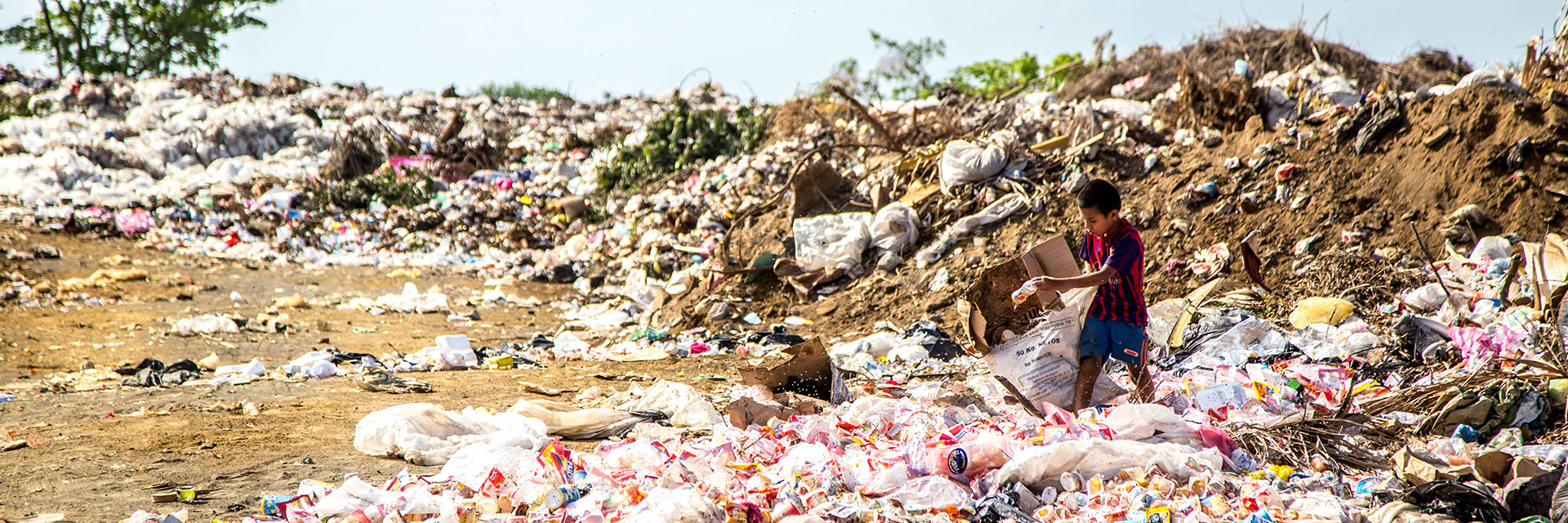
The Basel Convention - Minimising cross-border transports of hazardous waste
The Basel Convention is one of the most comprehensive global environmental agreements on hazardous waste. It was formed to improve waste management control and minimise hazardous waste transports across borders.
The Basel Convention gathers 191 parties and was developed within the UN system under the full name “The Basel Convention on the Control of Transboundary Movements of Hazardous Waste and their Disposal”. Signed in 1989 and implemented in 1992, it regulates transboundary movements and hazardous waste management. Its members are obliged to ensure that hazardous wastes are managed and disposed of in an environmentally sound manner.
The Swedish EPA’s primary role in this cooperation is to support the Government Office in the development work of the Basel Convention by establishing Swedish positions and negotiation strategies. In addition, the Swedish EPA participates in Small Intersessional Working Groups, SIWGs, and expert groups.
Additional annexes and protocols
There are a number of amendments and protocols connected to the convention, for example:
- The Ban Amendment, that was signed in 1995 and implemented in 2019. It prohibits export of hazardous waste from OECD and EU countries to countries that are not members of the OECD or the EU.
- The Basel Protocol on Liability and Compensation, that was signed in 1999 but is not yet implemented. The protocol regulates who is financially responsible and liable for damages during transboundary transports and disposal of hazardous waste, including possible illegal transports.
Sweden has ratified the convention, but not yet the protocol.
The objective of the Basel Convention
Hazardous wastes include toxic, explosive, corrosive, flammable, ecotoxic, and infectious wastes. As environmental legislation gradually got stricter in the western world in the 1980s, the costs of managing hazardous wastes increased correspondingly. “Waste traders” made a business of sending hazardous wastes at a low cost to East Europe and developing countries with no or little means for managing waste in an environmentally sound and healthy manner.
The basic principles of the convention are:
- To manage and dispose wastes in a correct manner
- To treat and dispose wastes as close as possible to their origin (where they were produced)
- To strive for minimising the amount of hazardous wastes in general.
The members of the convention work together to:
- Control transboundary transportation of hazardous wastes
- Monitor and prevent illegal trade of wastes
- Support sound waste management
- Promote cooperation
- Develop technical guidelines for management of hazardous wastes
More about the work of the convention
Decisions are made and implemented by the member representatives every other year through the Conference of the Parties, COP.
The Basel Convention has a secretariat set up by the UN Environmental Programme, UNEP, in Geneva. On the website (see link below) you will find information in English regarding the convention and its operations, as well as information about the annexes and the protocols.